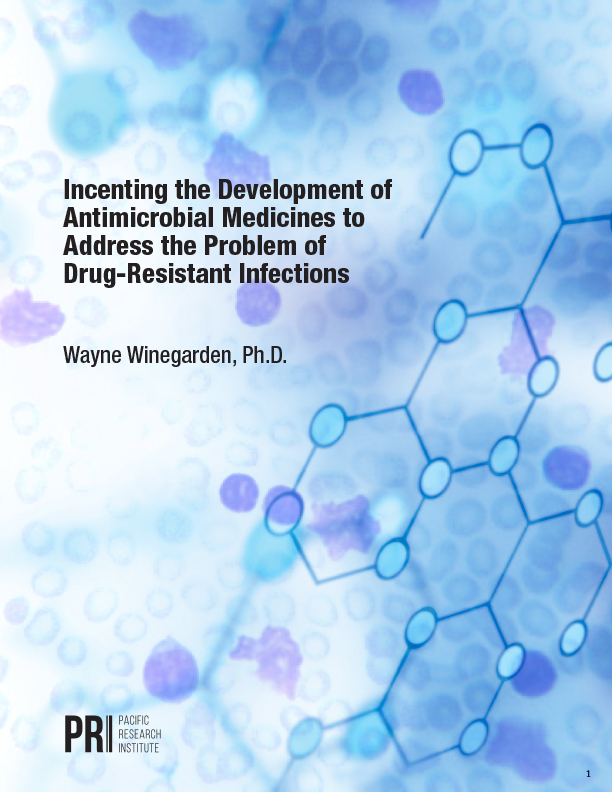
Incenting the Development of Antimicrobial Medicines
SACRAMENTO – Responding to the problem of drug-resistant infections and the decline in the development of new antibiotics, the Pacific Research Institute today released a new study on ways to incentivize the development of new treatments that will effectively address this growing public health crisis.
A copy of the study can be downloaded here.
“More and more people are suffering from drug-resistant diseases, yet the development of new treatments are not keeping up with this growing crisis,” said the study’s author, Dr. Wayne Winegarden, PRI Senior Fellow in Business and Economics. “By embracing free-market policies, we can encourage more innovators to develop the new medicines that are needed to stop these infections and save people’s lives.”
The World Health Organization reports that antimicrobial resistance (AMR), or infections that are resistant to current antibiotic treatments, pose “an increasingly serious threat to global public health.” The International Federation of Pharmaceutical Manufacturers notes that, “over the past three decades only two new classes of antibiotic medicines have been discovered, compared to 11 in the previous 50 years.”
In the study, Winegarden reviews the strengths and weaknesses of proposed development incentives for antibiotics and antimicrobials. He concludes that:
- Free-market policies can effectively counter current policies that are discouraging the development of antibiotics and antimicrobials.
- Learning from the success of the Orphan Drug Act, a 1983 law that incentivized the development of drugs to treat rare diseases, there is great promise in policies that reduce regulatory costs, enhance tax credits, and offer transferable and expanded exclusivity.
- Combined with investments in effective research, a free market approach can encourage more innovators to develop new vaccines, antibiotics and antimicrobials, while reducing the global health threat from AMR.
“It is a tragedy that government policy is actually serving as a disincentive to the development of potentially life-saving treatments to drug-resistant diseases,” said PRI President Sally Pipes. “Policymakers should review the findings of PRI’s new study very carefully, and embrace free market policies that will lead to more cutting-edge research and new, effective treatments.”

